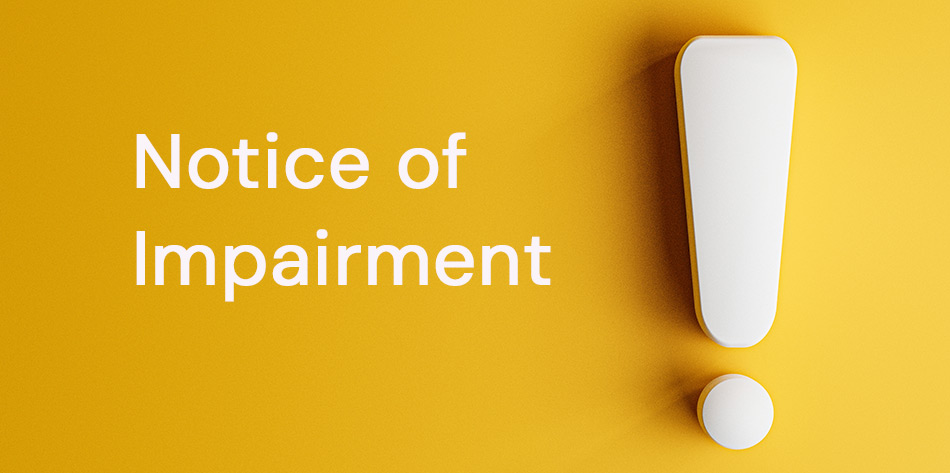
What is an Impairment Notice?
From the 1st January 2025*, all new NDIS Participants will receive an access decision letter which says if their NDIS application was approved because of:
- their disability requirements,
- the early intervention requirements,
- or both.
*At the date of writing this resource (March 2025) we are yet to see Impairment Notices being created.
This letter will include their category of impairment(s).
Impairment Categories
Under this new system, impairments will be classified into 6 different categories:
- Intellectual
- Cognitive
- Sensory
- Neurological
- Physical
- Psychosocial
A participant may be notified that their NDIS-eligible impairments fall under one or more of these categories - for example: a participant may be classified as having an intellectual and physical impairment based on the functional impact of their disability diagnosis.
What is the difference between diagnosis and impairment in the NDIS?
Instead of focusing on disability diagnosis, an Impairment Notice will put the focus on the impairment(s) that makes someone eligible for the NDIS.
NDIS access will not be granted based on disability diagnoses.
Why is the NDIS introducing Notice of Impairments?
The change was recommended by the NDIS Review, and gives Participants clearer information about how they meet (or don't meet) the disability or early intervention requirements..
The move to impairment instead of diagnosis also acknowledges that two people with the same diagnosis might have very different impairments and support needs.
IMPORTANT: The NDIS will only fund support for the impairments listed in the participant’s Impairment Notice.
How Impairment Notices Affect Your NDIS Plan
Section 34 of the NDIS Act stated that support needs must be reasonable and necessary. There’s now a new addition, Section 34aa which says:
“The support is necessary to address needs of the participant arising from an impairment in relation to which the participant meets the disability requirements (see section 24) or the early intervention requirements (see section 25)”.
In plain English, the NDIS will only fund support for impairments listed in the participant’s Impairment Notice.
If a condition isn’t classified as an impairment, it won’t be funded.
Here are some examples of how impairment affects your NDIS funding
CASE 1:
Trudy has cerebral palsy, which affects her ability to walk. Because her Impairment Notice recognises her physical impairment, she can get NDIS funding for a wheelchair, orthotics and physiotherapy to help with mobility. This meets the criteria because:
-
It is reasonable and necessary
-
It is a need that arises from her physical impairment
Trudy also has autism. If the NDIS hasn’t recognised a sensory impairment in her Impairment Notice, she wouldn’t be able to get support for her sensory needs arising from her autism - even if she has a diagnosis.
CASE 2:
David has multiple sclerosis which may have an impairment that makes him unable to walk. If that physical impairment is recognised by NDIA in their Impairment Notice, the request for a powered wheelchair meets the first criteria of Reasonable and Necessary.
However, if David also had a diagnosis of schizophrenia and the NDIA hadn’t recognised a psychosocial impairment, David would not be able to access supports relating to the impact of their schizophrenia.
The problem is that we know people can have co-occurring diagnoses and impairments, and multiple support needs.
What about children under 6 years of age?
For children younger than 6 years old who meet the criteria for developmental delay, the information will say they are eligible under the early intervention requirements with developmental delay.
Did you know?
All participants (or their representatives) can submit a “Participant information access” request to the NDIA. Here you can access information relating to:
- Access Request Form (ARF)
- Evidence of Disability (EOD)
- Supporting Evidence Form (SEF)
- Access Decision
- Reasons for your Access Decision.
Whilst the above is no formal Impairment Notice, it could provide information about which disability(ies) a person has been granted access to the Scheme for and what information the Agency has on file.
Until Impairment Notices arrive, this could be the information used by the NDIA to determine which impairment(s) a person has met NDIA access for.
What happens if I don't agree with my Impairment Notice?
Impairment notices are reviewable decisions. Participants can seek a variation to add or remove impairments at any time after meeting access. If the NDIA refuses to vary a person’s Impairment Notice, they can ask for an internal review.
Sources:
- NDIS Guidelines
- Frequently asked Questions about Legislation - Notice of Impairment (s32BA)
- Applying to the NDIS
NDIS THERAPY FINDER - FREE SERVICE
LET US FIND YOU A SKILLED SUPPORT WORKER

